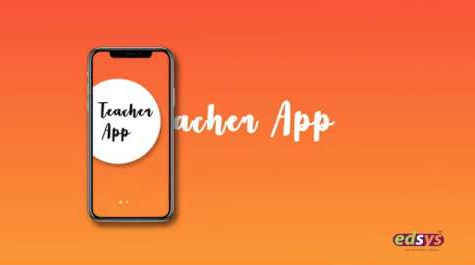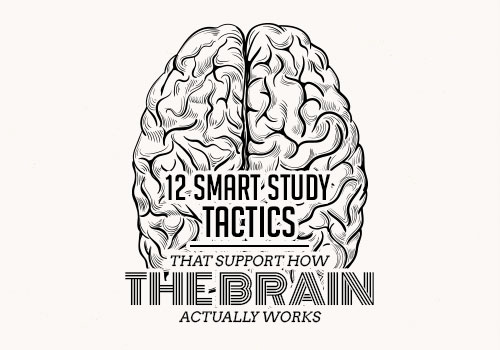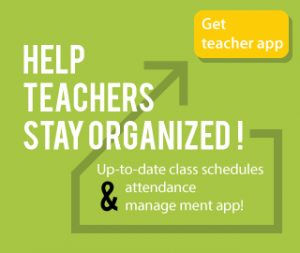Categories(658 Blogs)
Select Category
Watch Right Now
Teacher App - Class
Schedule & Attendance Management App
Parent App from Edsys

Best School Bus Tracking System

Cashless School - For Smart Schools of Tomorrow


12 Smart Study Tactics That Supports How the Brain Actually Works

Are you looking for ways to outsmart your friends by learning smartly and scoring well?
There are lots of strategies and techniques put forward by enthusiasts to help out students to utilize their potential and excel well.
However, certain tactics really support the way brain actually works and thus assure productive results over time.
Even when there are many learning modes, certain hacks lets your brain respond and process information faster and retain it for long.
Here let us have a look at some of the smart study tactics that are based on the brain research studies.
1. Study with a view
Instead of simply approaching a subject just to learn it and complete it on time in a closed setting, aim to study anything with a proper view.
According to study reports from the University of Illinois, the learning results are better “in a room with a view of a green landscape, rather than a windowless room or a room with a view of built space.”
The view to greenery is not only pleasing for your eyes but refreshing for your brain. Studying in such a scenario helps students to perform better in tests.
2. Test Yourself In Advance
Just before you start learning a subject, testing your knowledge in it in advance can do the trick.
You may answer it wrongly at first but your brain is now ready to wait and know the correct answer which makes learning easy.
This learning mode helps to make best use of fluency illusion that enables you to answer questions easily in the final phase.
The pretesting before going through the notes improves the way you think about a subject and the brain easily stores the information contained in the questions for later use.
3. Space out Study Sessions
Instead of studying for long hours, it is a good idea to space out your study sessions in short periods for productive learning.
Repeated short training sessions just means that your brain is working at full power.
You can break your study period and correctly space it over time and engage multiple sets of sessions for better results.
Also attention spans of the students seem to be very less and it gradually decreases over the time. So make better use of the first 20 to 30 minutes and take a break and start again on a fresh note.
4. Be in the Middle of High Performers
The people around you can influence you unknowingly and so it is a better choice to be in the middle of high performers which makes you one among them eventually.
The high performing students can not only influence you to perform better but offers a helping hand too in making your learning easy.
Try to teach the students who struggle with studies which will help you remember your lessons better.
5. Take Regular Power Naps
It may Sound silly or funny for many people but taking regular power naps in between the study sessions can really work wonders.
These power naps rests your brain and you wake up fresh for a more productive study time rather than just dragging on a boring and sleepy study time.
Some studies even note that memory is better processed during these naps and thus helps you to retain the lessons for long.
Students can also perform better in visual spatial tasks when proper power naps are taken between the study sessions
6. Mix up Your Study Environment
It is not advisable to study in the same environment always even if it is comfortable but aim for mixing up the study environments.
If you study in your room for some time, then try learning in different scenery like your house terrace or garden the next time.
This helps to make new associations with your brain and this aid to retain and recall information later.
Studies have noted that your brain needs variation to be more productive and it needs to move and requires periodic breaks.
In fact, changing context and changing environment means better retention.
7. Learn by Doing If Possible
In which ever cases possible, try to learn a subject by doing it as hands on learning lets you understand it better than learning theory.
It may not be possible in all cases but try to bring in this approach in all possible cases. Once a student physically experiences the subject, it helps them to grasp it and retain it in memory for long.
The brain scans have noted that students had activation in the sensory areas of the brain when trying to recall some information they physically experienced.
8. Test Yourself Periodically
You might have learnt a subject in detail and might be updating on it but testing yourself periodically can make a big difference when it comes to the end results.
According to studies, metacognition is really significant in case of studies which mean that being aware of your own learning and knowing where you stand in case of memory retention and recall.
Instead of just assuming that you remember whatever portions you have covered, test yourself periodically by listing out what you actually remember.
Check out the areas you missed in the list and learn it again for retaining it better.
9. Learn With a Different Style Every Time
Studying a subject in the same learning style and technique should be avoided.
Making slight changes in the way you practice a new skill in fact expedites the learning process.
Also rather than practising the same set of information or task again and again, try to practice a modified version or an added task every time for better outcome.
Also the modification you make between different sessions needs to be subtle than making a big change all of a sudden.
10. Imagine Teaching Someone Else
One of the best brain hacks to study faster and smarter is to teach someone else once you have learnt a subject or at least just pretend that you are doing it.
This helps you to remember more of what you have learnt correctly and organize the recall in a much better way.
11. Study in Groups
Of course, you need individual study time but studying in groups once in a while can be good that eventually improve your decision making skills.
Of course, teacher led discussions are important at times when studying something new and important.
However, the efficiency they gain from collaborative group work improves their ability to come up with reasoned decisions and they can apply it better when handling a novel task.
In a new research study, the students who were involved in group study performed better in decision making than those who studied alone or under the guidance of teacher.
12. Always Aim For Mastery
Approaching a subject just to know it doesn’t sound smart but you should always aim for mastering the subject which can really make a difference.
Students who target for a relative performance may not go all the way up in the journey but a strong determination to master it can gear up your performance.
So just stop comparing yourself to others and just aim well for developing your own competence. In fact, mastery approach goals can eliminate the chances of retrieval-induced forgetting.
There are a lot more tested and proven brain hacks that help you outsmart your friends.
For instance, instead of re-reading what you have learnt, quizzing yourself produce better results.
You may also try interesting tricks such as creating flashcards for better memorization, listening to soothing background music while studying, and by discovering new ways to learn a boring or tough subject.
Using standing desks while studying and repeating new information aloud than silent reading can sometimes do the trick.
Keeping these strategies in mind can help students to study better, smarter and quicker as it helps exactly the way how brain actually works.
Also maintain good sleep, exercise and food habits that can indirectly boost your academic performance.
Never skip your breakfast and have a healthy 8 hours night sleep in addition to doing regular physical exercises.
Also Read : How to Set SMART Learning Objectives For Your Students
Recent Blogs
Our Educational Services
Popular Blogs
Subscribe

SUBSCRIBE TO OUR NEWSLETTER
Sign Up and Recieve the Latest News
Don’t Worry, We Don’t SpamExplore Our Extensive Researched Educational App Directory
Visit Now

















